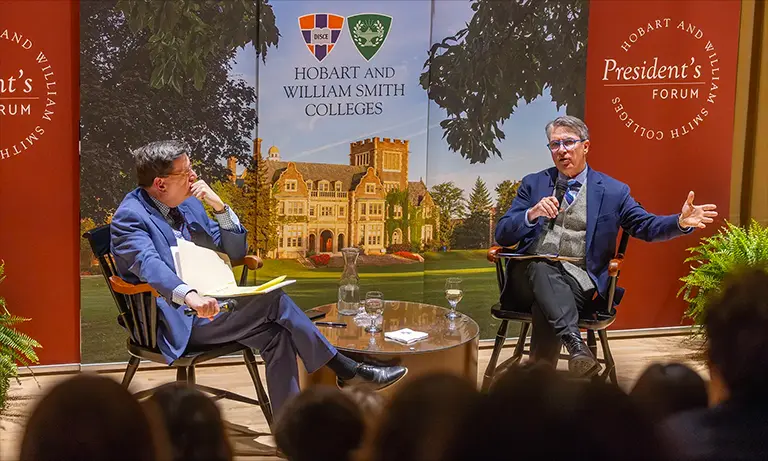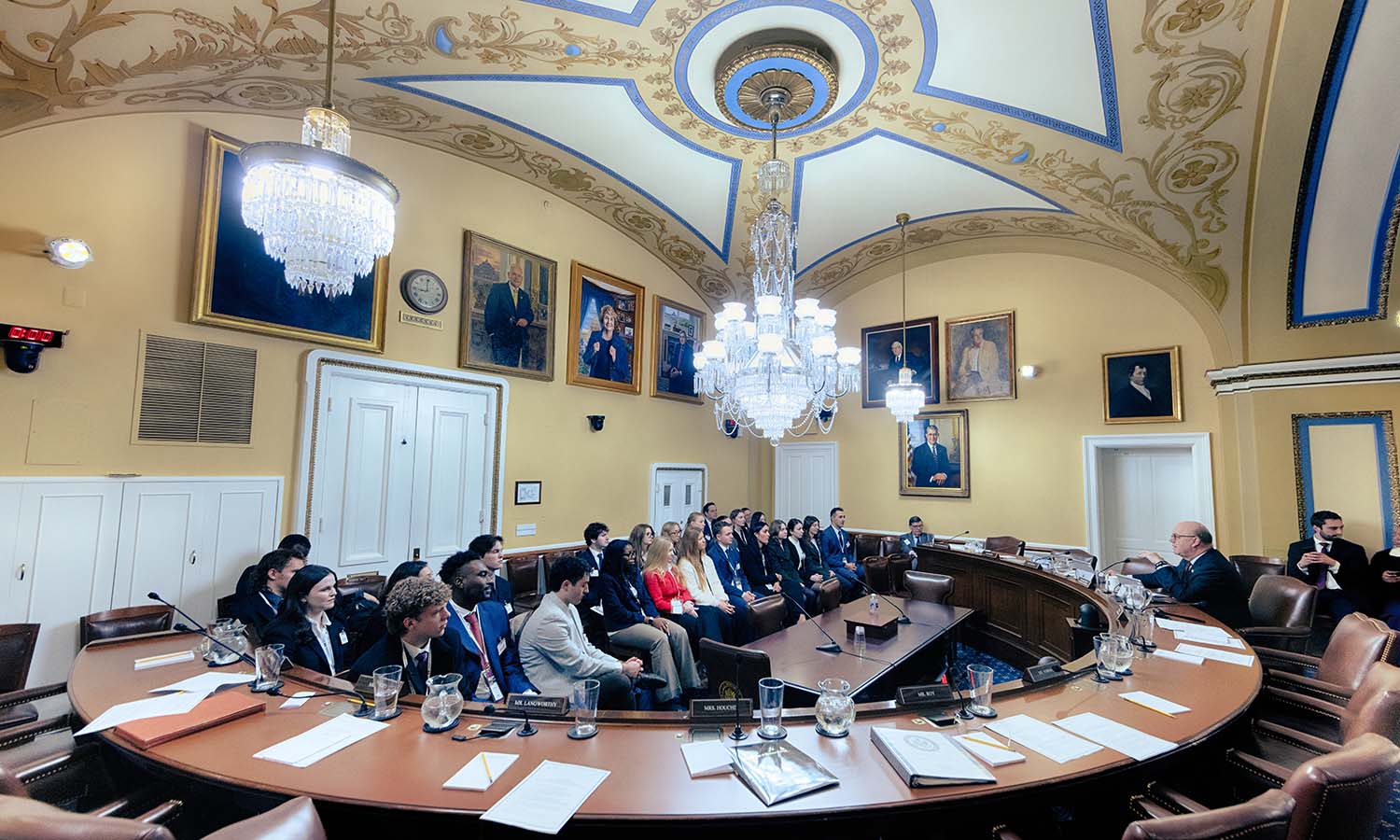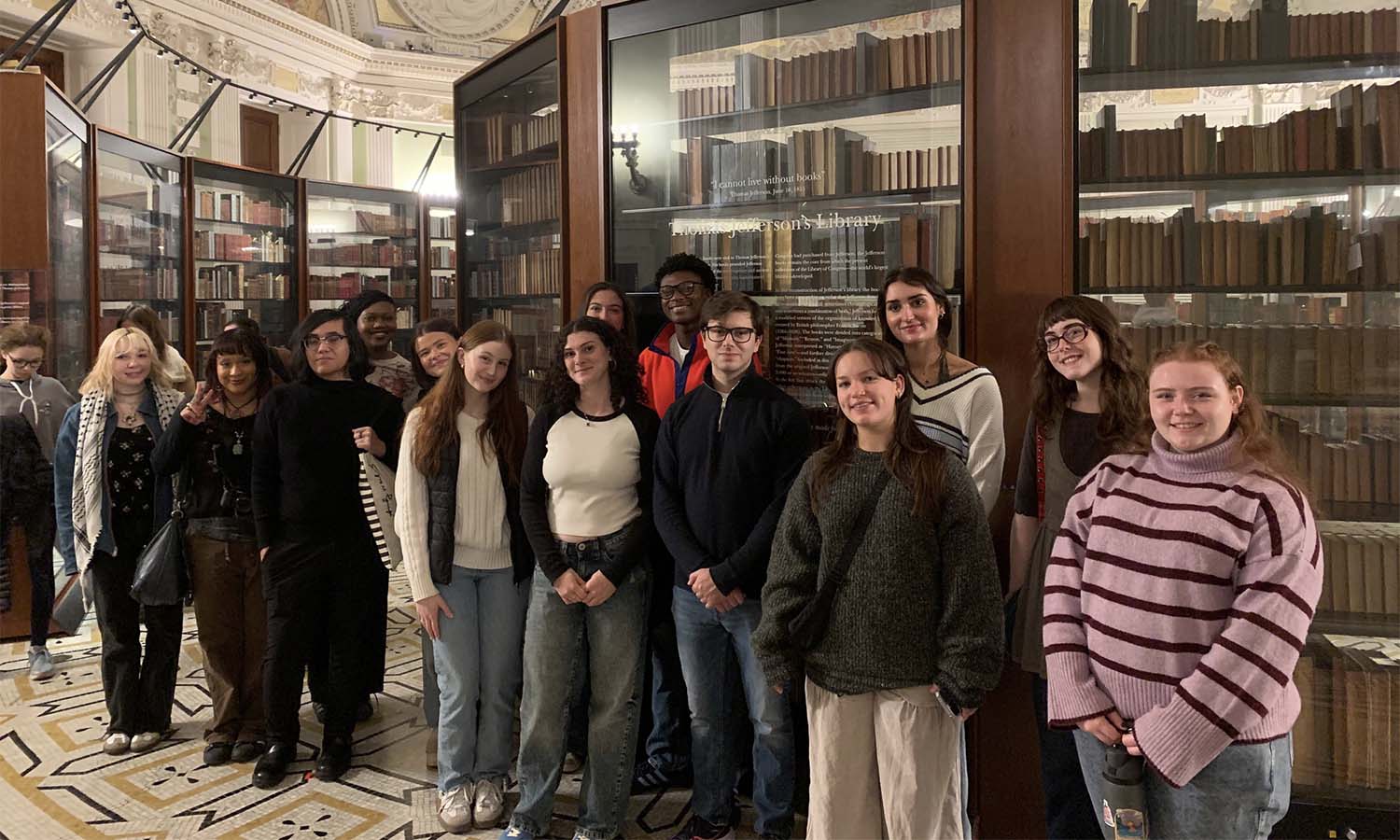
HWS News
22 April 2024 Unpacking America's Political Traditions and Future
Major conservative thinker Patrick Deneen argues for a populist conservatism that reimagines the political and social dynamics of the nation.
Is there a conservative tradition in America?
In his President’s Forum Series lecture, Patrick Deneen offered a “qualified…but not a resounding yes.”
Deneen — a professor at Notre Dame University and influential author shaping contemporary conservative political thought — argued that without a history defined by feudalism and peasant revolution against aristocracy, the U.S. is temperamentally disinclined toward either socialism or conservatism, favoring centrist liberalism instead.
As he traced the tradition of liberalism in the U.S. back to British philosopher John Locke and through the early years of the nation to the post-World War II “liberal consensus,” Deneen said that many attributes that are frequently labeled “conservative” in the U.S. are in fact features of Lockean liberalism: “the system’s generation of individualism, its emphasis upon self-interest, its materialism…reducing [people to] consumers rather than citizens, its insistence upon the inviolability of individual rights, of property, its hostility toward taxation at the expense of social and communal goods, of health, education, housing, welfare and so on.”
Deneen suggested that rather than continuing this liberal tradition, a populist conservatism might be the antidote to the sociopolitical problems that the past several decades have put into sharp relief.
Conservatism in this sense would be a force for stability, with more populist, local forms of government supporting lives less focused on materialism and more oriented on community.
“Depending on what angle you look at, this populist tradition could look left-socialist or right-traditionalist,” Deneen said. The traditionalist opposition against capitalism, for instance, doesn’t arise “only because of…inequality, but also because capitalism was kind of disordered and led to instability in the lives of those who led traditional lives.”
Lockean liberalism, he concluded, is less solid today than half a century ago, which could be cause for lament, but “someone like myself celebrates that. Not because I seek the demise of liberalism simply for the sake of liberalism, but the possibilities it could open up. I think we are actually in a time when there’s perhaps a new openness to different possibilities.”
The question going forward, he said, is: “Are the people revolutionary, or are they conservative? And if that’s the terms of our debate, then we’re in for an interesting ride.”
A “major intellectual on the New Right,” as a 2023 profile in Politico notes, Deneen is the author of Regime Change: Towards a Post-liberal Future and the widely debated Why Liberalism Failed, praised by President Barack Obama for offering “cogent insights into the loss of meaning and community that many in the West feel, issues that liberal democracies ignore at their own peril.” His other books include Conserving America? Thoughts on Present Discontents, Democratic Faith and The Odyssey of Political Theory.
Deneen holds a B.A. in English literature and a Ph.D. in political science from Rutgers University. From 1995 to 1997, he served as speechwriter and special adviser to the director of the United States Information Agency. He taught at Princeton University and Georgetown University before joining the faculty of Notre Dame in 2012.
Established in 2000 by President Mark D. Gearan, the President’s Forum Series brings a variety of speakers to campus to share their knowledge and ideas with students, faculty and staff, as well as with interested community members. Deneen’s lecture was hosted in collaboration with the HWS Department of Politics.
Top: President Mark D. Gearn listens to Patrick Deneen during the President's Forum Series lecture.



